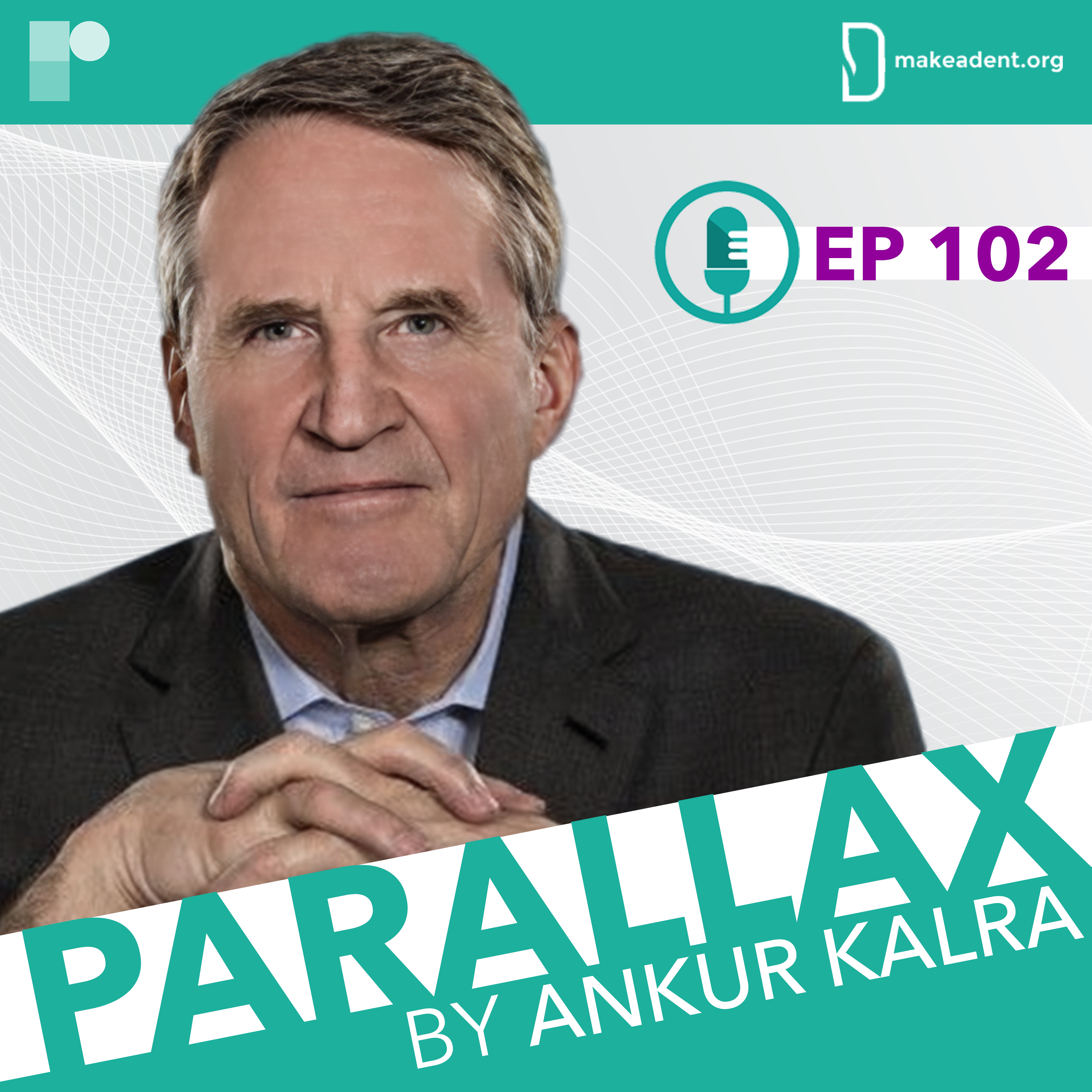
In this week's episode of Parallax, Dr Ankur Kalra's guest is Dr Craig R Smith, Cardiac Surgeon and Chairman of the Department of Surgery at Columbia Presbyterian Hospital.
In 2020, The Wall Street Journal called Dr Smith the pandemic's most powerful writer. Each day throughout the COVID-19 crisis, Dr Smith provided the faculty and staff with updates on pandemic response and priorities, offering both vital information and unwavering support. This month, Dr Smith released his book, 'Nobility in Small Things: A Surgeon's Path’.
In this inspiring episode, Dr Smith delves into the story behind his book and the motivating circumstances that led him to become an author. Dr Kalra asks Dr Smith about his experience as a leader during the pandemic as a surgeon. Dr Smith shares the story of his unconventional journey into medicine, emphasizing how hard physical labor built his resilience and prepared him for his residency. Dr Kalra also asks about Dr Smith's experience as a surgeon for President Bill Clinton in 2004. We learn more about some of the highlights of Dr Smith's book and his advice for listeners aspiring to become writers.
Nobility in Small Things is available for purchase here: us.macmillan.com/books/9781250278…ityinsmallthings
Questions and comments can be sent to “podcast@radcliffe-group.com” and may be answered by Ankur in the next episode.
Guest: Dr Craig R SmithHost: @AnkurKalraMD and produced by: @RadcliffeCARDIO.
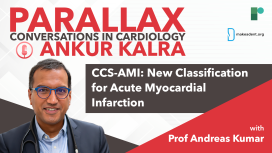



Tune in to discover the strategies that Dr. Kalra and Dr. Alasnag are currently employing and gain insights into how these data will shape their future decision-making in the catheterization laboratory. Don't miss this informative discussion at the forefront of interventional cardiology.

As we adapt to the changes brought about by the pandemic, Dr Singh outlines the necessary steps to foster a reality in which we can utilize these technologies to create more time for human connection.

Dr Owens is Medical Director of the Center for Inherited Cardiac Disease and Associate Professor of Medicine at the Hospital of the University of Pennsylvania.
This series is supported by an unrestricted educational grant from Bristol Myers Squibb. Please see www.camzyosrems.com for important safety information.
This content is intended for US-based physicians.
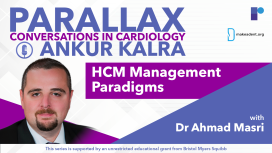
This series is supported by an unrestricted educational grant from Bristol Myers Squibb. Please see www.camzyosrems.com for important safety information.
This content is intended for US-based physicians.
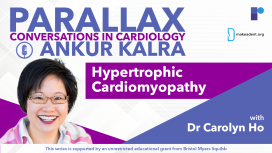
This series is supported by an unrestricted educational grant from Bristol Myers Squibb. Please see www.camzyosrems.com for important safety information.
This content is intended for US-based physicians.
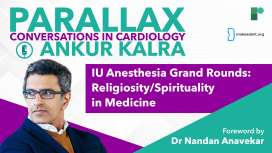
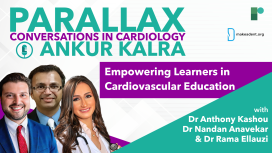


US Cardiology Review journal, has recently seen a 7-fold increase in female editorial board members in response to journal-based strategic initiatives and the stellar work of USC editorial board leadership, Ankur Kalra (Editor in Chief) and Bill Gogas (Deputy Editor in Chief), who were keen to drive this change. With thanks to Dr Anastasia Mihailidou’s tenure as a new board member and her suggested nominees, ten new female board members have recently joined US Cardiology Review’s editorial board.

In this episode, Mike opens up about his childhood in Stilwell, Oklahoma. Ankur and Mike discuss how the inductive quality of art can complement the deductive principles of science. Mike recalls earlier stages of his career and warns about the blinding effect of the ego-driven, competitive culture of cardiology. Ankur asks Mike about fatherhood and about his role as an educator.
What does it mean to be fearless as a medical professional? How can you protect yourself from the emotional toll of the profession? What is Mike’s advice to early career cardiologists?
Sponsored by Edwards.

During her interventional cardiology fellowship, Dr Baron became fascinated by the implementation of novel technologies. She earned her degree in Clinical Epidemiology and spent a year working at the FDA’s Device Evaluation unit.
In 2019 Dr Baron presented the results of her late-breaking trial, COAPT. Ankur invites Suzanne to discuss the economic analysis of the study and to give a short introduction to cost-effectiveness analysis. Suzanne provides an overview of the trial and they talk about the importance of understanding the value and benefits of new devices from both the patient and the health-economic point of viewpoint.

How should you start building a research programme? What are Chuck Simonton’s thoughts on the relationship between doctors and the industry? What is Chuck’s message to young cardiologists?

After the #MedBikini campaign provoked by a misogynistic study that scrutinized female doctors’ social media posts, this episode is about creating a safer environment for female healthcare professionals.





